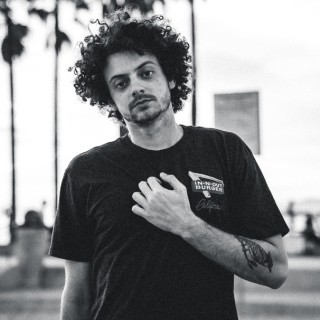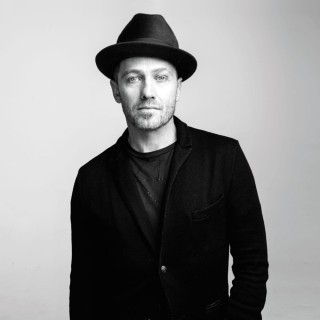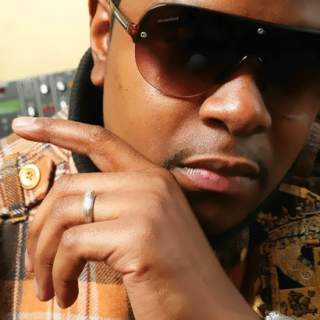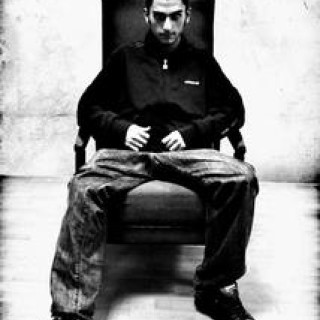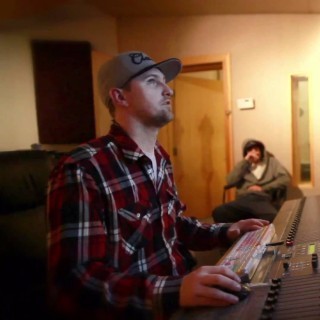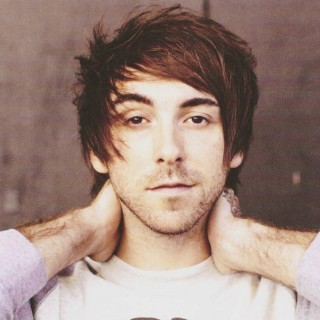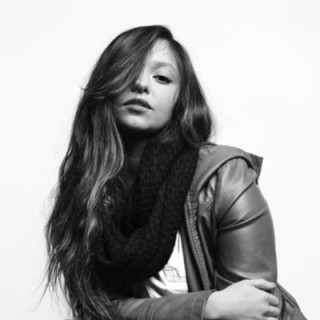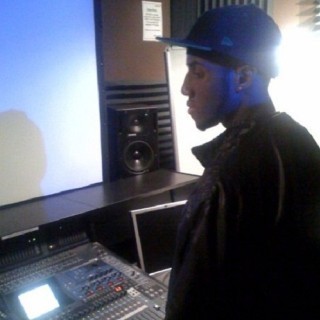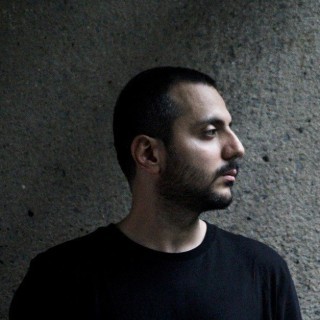
Rap Critic Reviews: "Gangsta's Paradise" by Coolio ft. L.V.
Rap Critic
180
Rap
Tekst piosenki
Hi. I'm the Rap Critic. Let's talk about Coolio. Now, I don't think pop music history as a whole has been very kind to Coolio, since as far as I can remember, everyone's kind of taken him to be a bit of a joke, a rapper to not be taken seriously. When you talk about the biggest names in hiphop in the 90's, the names that are often tossed around are cats like Biggie Smalls, Wu-Tang, Snoop Dogg, Ice Cube, LL Cool J, and Nas, but I almost never hear any praise for Coolio, which is interesting, because, I mean, he wasn't a bad rapper or anything, he was decent enough, and the man had multiple hits back in the day, and in fact, the song I'm reviewing today, became the first rap song to be number 1 on the billboards year-end charts, so people knew who he was, and, I think people still know who he is, he's not some obscure reference that time forgot, I just think that, well, people don't really respect Coolio as far as Hiphop is concerned, and, hey, I get it, the guy's name is a portmanteau of "cool" and "yo", his name couldn't sound like a more cheesy "urban" buzzword if he called himself "nahmean-nahmsayin", and yeah, at the height of his fame, he did rap the theme song for a kids' t.v. show, definitely not the most gangsta thing to do in hindsight, but I'll defend that move, because, hey, Kenan and Kel was a good show, and he never struck me as someone who was trying to be a super thug or anything, But hey, honestly: it was the hair, wasn't it? Yeah, it was probably the hair. I mean, few things are gonna make you look like a comical portrayal of hip hop's aggressiveness than gravity defying braids. *I refuse to bow down to any law written by a white man, and neither will my hair!* But yeah, while I think the zero G braids were cool, it's not exactly the most toned down look you could have. I mean, if the only other rapper rocking' a similar hairstyle to you is this guy:
*show ODB with hair*
You might wanna go for something different if you want to be taken seriously. It's also not helping that, despite the fact that he's currently balding, he's decided to keep his braids up, on the two little islands of hair left on his head. Dude, cut that off, man! Go out with some dignity! *looks over* Oh, what's that? He's doing soundtracks for porn websites now? …alright… And I will say that, in addition, it's not like "Gangsta's Paradise was the only type of music he was making. His first hit was actually this:
"Fantastic Voyage"
Yeah, a lot of his stuff was actually a lot more party oriented, but with a hardcore rap slant to it. And actually, if you think about it, his first smash hit was a song that actually serves as a transitional point for what was happening in hiphop at the time. "Fantastic Voyage" was released in 1994, the time period in Hiphop where rap in the mainstream charts was losing it's grip on happy dance music like C+C Music factory and Kid n Play in favor of hardcore rap like 2Pac and Bone Thugz N Harmony dominating the charts. And "Fantastic Voyage" represented the harder edge of that party music, but a lighter side of gangsta funk, with the bouncing bass and synth sounds commonly associated with Dr. Dre's style of harsher, thugged out rap personas, while the song, indeed incorporating themes of ghetto culture, had a main message about Coolio wishing he could close his eyes and escape the dangers of his neighborhood
Come on y'all let's take a ride
Don't you say shit just get inside
Close your eyes and hit the switch
We're going to a place where everybody kick it
A Place where my kids can play outside
Without living in fear of a drive-by
And ya know, where this song encapsulated the transition of trends in mainstream rap, this happier joint wasn't the one people remembered the most. The one that topped the charts and solidified Coolio into the minds of millions was the song, "Gangsta's Paradise". This, in my eyes, is the quintessential song that represented Hiphop's identity as a genre and at the same time, echoed the mind set of Black culture in American Society in the 90's. In fact, I'd dare say that few songs that got this popular in the 90's really summed up the overall feel of the decade, at least as far as hiphop and it's young audience was concerned
*video starts*
You know, I actually think that, in addition to this song being good, this is quite an audacious music video here, A because it's one of the very few music videos for a song on a movie's soundtrack that actually tried to incorporate what was happening in the movie clips with what was happening in the actual video (seriously, how many music videos have you watched where they just randomly throw clips or t.v. screens in there showing parts of a movie that has absolutely nothing to do with the context of the video?), and B, because it ties so well into the movie that this is from, "Dangerous Minds", a movie about an upper class teacher coming into a poor neighborhood to get the hardest kids to teach interested in learning. Now, I can't tell you how good the movie is at portraying this, as I haven't seen it in a while, but I don't remember it being too terrible; however, the way they tie it into the music video itself, actually having Michelle Pfeiffer in the video for a cameo, was pretty cool. And then, she says the line:
"You wanna tell me what this is all about"
Which sets off the tone in a fitting way, as here is this person of upper class privilege coming into the darker world of poverty… *ahem* visually, but uh… I guess you could say "ethnically" as well, and she wants to know what this is all about, what is happening in the minds of the people of this environment. And this song and video served as a microcosmic interpretation of what was happening in the black community as gangsta rap got more popular in the homes of the people typically located outsides the confines of hip hop's culture at the time… ya know… upper class white folk
As I walk through the valley of the shadow of death
I take a look at my life and realize there's nothin' left
Cause I've been blastin' and laughin' so long
That even my momma thinks that my mind is gone
Right of the bat, we start with Coolio interpolating a quote from Psalms, chapter 23, verse 4, and where, in the original context, the verse describes being comforted by a loving God through hardships, inciting hope and faith, Coolio contrasts that with being unassured of his life's path, saying that, now that he's gone down this road, there's no way out for him, nothing left for him to do but ride out this path of destruction until his demise, and that, in addition, no one believes in his ability to be anything more than a lowlife thug
But I ain't never crossed a man that didn't deserve it
Me be treated like a punk, you know that's unheard of
You betta watch how ya talkin' and where ya walkin'
Or you and your homies might be lined in chalk
*eyes get low* I'm gonna assume that this rhyme scheme is actually a clever way to indicate that Coolio's character had a neglectful elementary school teacher, and instead focus on the content, where he defends his motives, citing that, despite everyone on the outside wanting to portray his actions as thoughtless and unjustified, that they arise from an instinct that comes from living in an environment where survival means killing any man who poses a threat
As they croak, I see myself in the pistol smoke
Now this is interesting imagery. He might be saying that he actually sees himself in the smoke, which… probably isn't likely, since smoke isn't very reflective, OR, he could be saying that he sees the smoke, the result of the fired pistol, as a part of him, he sees himself IN it, and what pistol smoke is, is an aftereffect of a violent action, which is what he embodies as what he is: an aftereffect of a violent society
Keep spending most our lives
Livin' in a gangsta's paradise
Been spending most their lives
Livin' in a gangsta's paradise
Going back to my point that this song encapsulates the 90's, we have a heavily sampled beat and chorus, which flips a Stevie Wonder song, but gives it a darker, more sinister tint
*play original*
They've been spending most their lives
Living in a pastime paradise
They've been spending most their lives
Living in a pastime paradise
You know, I really like it when a song not only uses a sample, but changes the feel of it, as Stevie Wonder's original version sounds more cerebral and contemplative, as from what I can tell from it's cryptic writing, is about people who are obsessed with the past and waste their lives reminiscing on a time that might not actually be as great as they thought it might have been, not focusing on the problems that are present in front of them, people who may be lost or insecure, and are seeking something to comfort them, similar to the psalm quoted at the beginning of Coolio's verse. Now, what do they do to flip it?
Keep spending most our lives
Livin' in a gangsta's paradise
Been spending most their lives
Livin' in a gangsta's paradise
So here, L.V., the singer, is saying that they've been surrounded by the exact type of environment that criminals thrive off of, just as dead animals attract buzzards, the environment that they have been born into, the hood, attracts criminal activity. So, when you're born into it, why WOULDN'T you get caught up in it? It doesn't matter what type of person you throw into it, either: this environment we live in invites criminals based on the way it functions. So, as you may have guessed, the word "paradise" is a subversion of what the word typically represents. And whereas a lesser emcee would have used the "paradise" angle to blast on the fleeting perks that come with that life, like maybe the rush of drugs, easy women and power, this song focuses mainly on how this paradise is in reality festering pool of negative energy that inherently drags you down
Look at the situation, they got me facing
I can't live a normal life, I was raised by the street
And I pretty much… just explained that line before it happened…
So I gotta be down with the 'hood team
Too much television watching, got me chasing dreams
And in this lyric, he throws a quick jab at television's typical portrayal of life, as frequently on t.v., we see the lives of those who live 10 times better than we may ever live, and it causes us to not be content with reality, to chase after a shallow, predetermined expectation of success
Power in the money, money in the power
Minute after minute, hour after hour
Everybody's running, but half of them ain't looking
It's goin' on in the kitchen, but I don't know what's cookin'
A lot can be said about this guy's cadence, which has gruff but ear-catching vocal inflection, so that each line rises in it's energy and pitch, that when it gets to the end of the 4th line in the couplet, you've heard this build up of tension, leading to him saying that everyone's afraid of him, scared of who he is and what he represents, and when he says that last line, it honestly comes across as a man who doesn't know what's wrong with himself, why he is the way he is, what even motivates his actions anymore. And what really cranks this song up to what it represents is broken down in the last few lines:
They say I gotta learn
But nobody's here to teach me
If they can't understand it, how can they reach me?
I guess they can't, I guess they won't
I guess they front, that's why I know my life is out of luck, foo!
This is honestly to me, one of the most important lyrics in Hiphop here. In lower class communities, our school systems keep getting their budgets gutted every year, and we have to deal with bad teachers, outdated books, and a biased educational system that doesn't care if students actually learned anything as long as they mindlessly memorize facts for tests that will never apply to their every day lives. Here, he makes it plain, in a general sense: if our own government doesn't see the value in our intelligence, and actively doesn't care about our well-being, if the ones in charge don't want to help us, and actively cut the funding for education, and has authority figures that abuse their power for their own gain at my expense, why do I need to care about what their institution wants to tell me? THAT, my friends, is what the youth of the 90's were going through in poor neighborhoods, and for the first real time in music history, you had to pay attention to the unedited words of a disenfranchised chunk of America, the people that were once glossed over are now in your face, and you had to be uncomfortable, you had to see what America's racist, classist system had done to those not lucky enough to be born in a suburban neighborhood, and FINALLY, AMERICA, YOU HAD TO LOOK YOUR PROBLEMS IN THE EYE, AND ONCE YOU DID THAT, YOU HAD NO CHOICE BUT TO… *sigh* assimilate the culture into a watered down caricature of it's former self, without really understanding it's problems, draining it of any impact, and grossly rewarded those who exploited and exaggerated the ills of it's lifestyle. Life is stupid like that…
Anyways, I give this song a 5 out of 5 stars. You know, a lot of mainstream rap songs talked about being gangsta and hardcore, but very few gave you a look into the paranoid persona, the pessimistic, self-destructive thought processes that come with it, at least very few have done it in ways that didn't come off as just trying to sound cool. I didn't feel like he enjoyed any of this. I felt like he hated this lifestyle, he hated himself, and he hated the world that put him here. This song is a lament, it is a dark evaluation of what was going on in the heart of Hiphop, and it was needed in pop culture, and… hey, this song was also parodied by Weird Al… I swear, I'm not doing this on purpose...
Tłumaczenie
Brak
Polecani artyści
Najnowsze teksty piosenek
Sprawdź teksty piosenek i albumy dodane w ciągu ostatnich 7 dni
